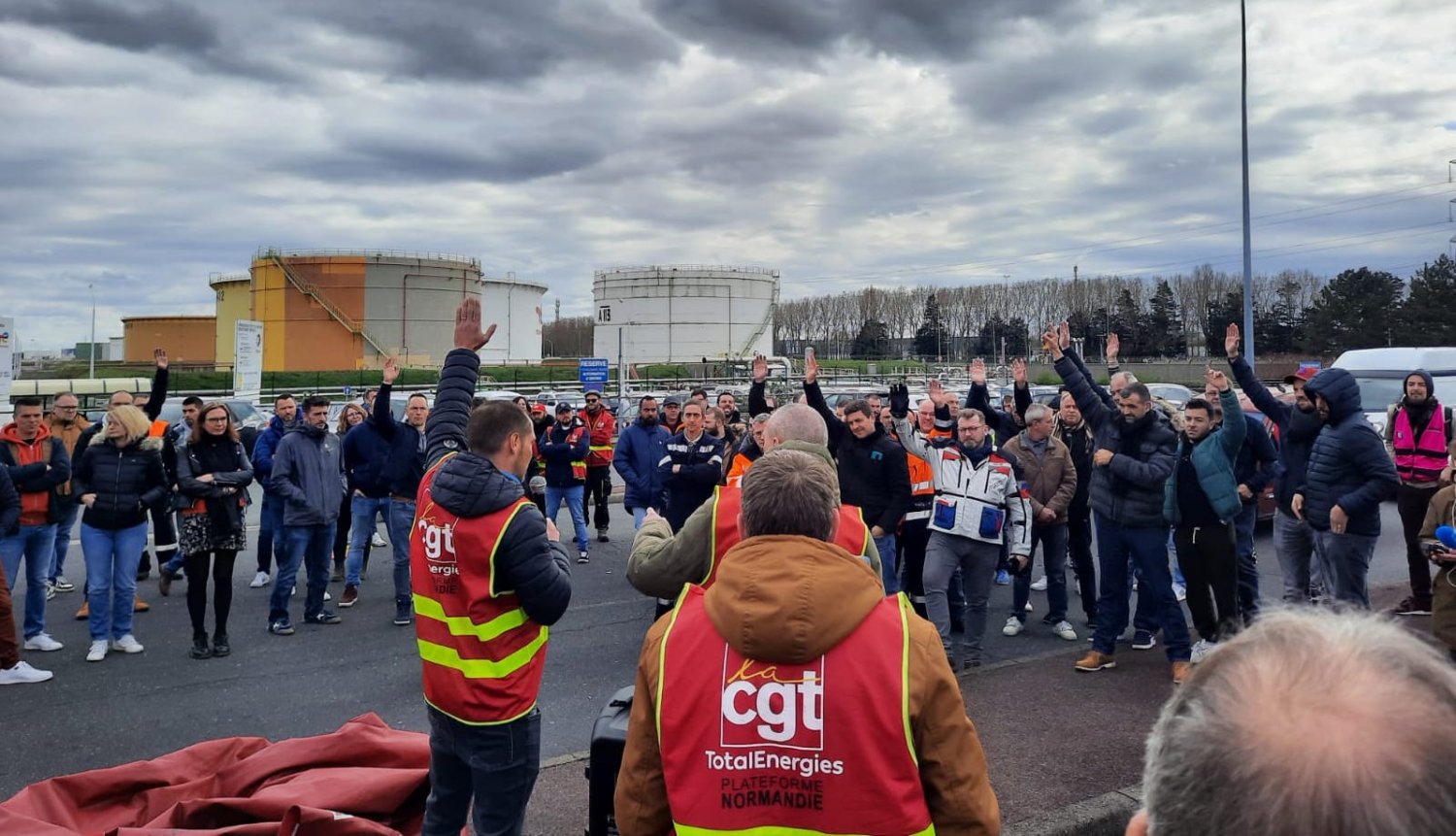
On Thursday, March 16, faced with the possibility that the French Parliament would not approve the unpopular pension reform, President Emmanuel Macron made use of article 49.3 of the constitution and passed the reform by decree. Immediately the French workers responded in the streets with spontaneous mobilizations throughout the country, on Thursday night and again on Friday.
But the most forceful response to date was the day on Thursday, March 23, in which an estimated 3.5 million people mobilized throughout the country, 800,000 in Paris alone. A record day from every point of view, exceeding the expectations of the inter-union itself, the organization that has led this movement since its inception and which called for the 23rd to mobilize.
That day there was a leap in anger and the radical nature of the marches, which was combined with a historic massiveness that tended to exceed the limits imposed by the inter-union.
In France, demonstrations must be approved by the authorities and notice must be given in advance which path the mobilization will follow. After the application of 49.3, in many cities, protesters left the declared routes, which ended in blockades and highway closures, as in Lyon and Chambery, and unauthorized demonstrations in front of local government houses as in Le Havre.
Made up of the two main trade union centers in the country (CFDT and CGT), the inter-union directs the movement bureaucratically, from above, trying at all times to channel energy towards a negotiated solution with the French bourgeoisie that long ago declared war on Workers. The height of this is that Lauren Berger, leader of the CFDT, the most negotiating center of the inter-union, abandoned the slogan of “withdraw the reform” that had been raised from the beginning and asked Macron for “a pause”.
While the regime is plunged into a deep crisis and Macron does not know how he will be able to continue governing, renewable strikes or reconductibles continue in sectors such as petrochemicals or energy, which for now and based on the active solidarity of the movement, managed to stop the calls requisitions that the state uses to break strikes.
In addition, the passage by decree of the reform ended up awakening the youth, who entered the scene with great force, mobilizing together with the workers and going to their pickets to bring solidarity. And enduring the repression. On Thursday, March 23, according to university and secondary (lycee) organizations, there were some 500,000 young people on the streets, 150,000 of them in Paris. Even students from historically right-wing and reactionary universities such as Assas in Paris, where far-right leader Marine Le Pen was trained, participated.
All these elements draw a pre-revolutionary moment that opens important perspectives for the mass movement.
On the other hand, Macron wants to break the mobilization through terror and authoritarian measures. The repression this weekend of the environmental demonstration in Sainte-Soline, after which a demonstrator remains between life and death, falls within this framework, as do the requisitions. In this context, the movement has urgent tasks to solve: broaden the strike, support the sectors on renewable strike, oppose the requisitions and organize solidarity against police repression.
The current leadership of the movement refuses to answer these questions. She is determined to stick with her strategy, even if it leads to defeat. While Berger calls the government to “pause”, abandoning the demand for withdrawal, the rest of the inter-union agitates for institutional solutions with a president who has just passed the reform by decree. There is no possible compromise with Macron and the regime, the only prospect to win is to generalize the strike!
For this, the only way is the organization from below of the workers. In the words of Anasse Kazib, a railway leader and member of Revolution Permanente“We have to build action committees for the general strike throughout France.” On Friday, the Network for the General Strike held a demonstration bringing 160 workers and students to the Normandy refinery in solidarity against the requisitions. This Monday was at the Ivry incinerator, stronghold of the Parisian garbage collectors strike.In the same way, the militant local CGT, the interprofessional commissions (Interpros) or the different general assemblies organize blockades and solidarity actions.
As Kazib said in statements to La Izquierda Diario, “in order to multiply these initiatives throughout the country, we need common organizational frameworks, action committees for the general strike that bring together all those who are convinced of the need to take the reins of our movement.” . We cannot leave the direction of the movement in the hands of the bureaucratic inter-union. Building them should be the priority in the coming days.”
Source: www.laizquierdadiario.com

